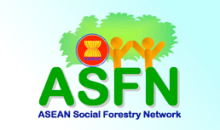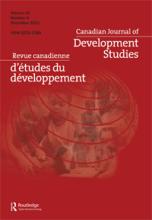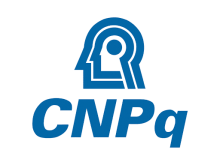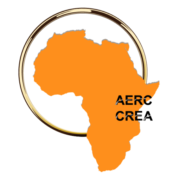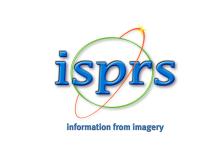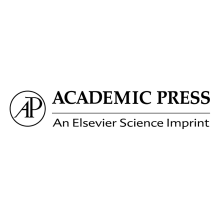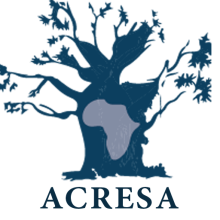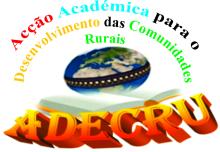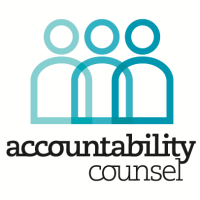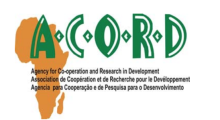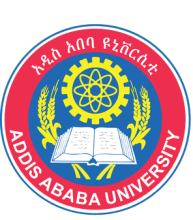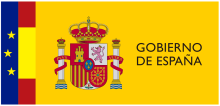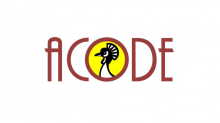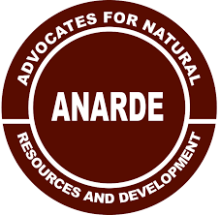The Land Library includes resources from more than 1,900 national and international information providers. Learn more about the organizations and institutions using the Land Portal to share their open-access research, data and stories.
Ernst & Young Holdings
At EY, our purpose is building a better working world. The insights and services we provide help to create long-term value for clients, people and society, and to build trust in the capital markets.
ASEAN Social Forestry Network
The ASEAN Social Forestry Network (ASFN) is a government-driven social forestry network that links government forestry policy-makers directly with members of the civil society, research organizations, academia, the private sectors and experts of related fields,- all sharing the common grounds to vision the growth of social forestry in all ASEAN Member Countries.
Launched at the ASEAN Senior Officials on Forestry (ASOF) in August 2005, ASFN is the first and largest government-driven social forestry network in Southeast Asia.
What are ASFN objectives?
With the support of the ASFN-Swiss Partnership on Social Forestry and Climate Change, ASFN aims to achieve the following OBJECTIVES:
1: Social forestry approaches developed and integrated into the climate change adaptation and mitigation strategies of ASEAN and its Member States.
2: Socio-economic benefits realized from the inclusion of communities, women and vulnerable groups in social forestry and climate change adaptation and mitigation
ASSOCIAÇÃO DOSPESQUISADORES CIENTÍFICOS DO ESTADO DE SÃO PAULO
Em meados dos 70, pesquisadores científicos dos institutos de pesquisa ligados ás secretarias de Estado da Agricultura, Méio Ambiente e Saúde reuniram-se no auditório do Instituto Biológico, em São Paulo, com o objetivo de fundar a sua Associação de classe. Após inúmeros encontros, em 2 de Agosto de 1977 foi criada a Associação de Pesquisadores Científicos do Estado de São Paulo (APqc), tendo como objetivos a divulgação, o fortalecimento e a defesa dos institutos públicos de pesquisa paulistas, das atividades de pesquisa e de pesquisadores científicos ativos e inativos.
Canadian Journal of Development Studies / Revue canadienne d'études du développement
The Canadian Journal of Development Studies is a peer-reviewed, interdisciplinary, bilingual forum for critical research and reflection on the complex problems of international development theory, policy and practice. The CJDS publishes articles and review essays, and the Journal aims to keep readers informed with occasional commentaries, practical notes and reviews of recent books and other media on international development. The CJDS is global in its outlook and encourages contributions from scholars and practitioners around the world. Founded in 1980, the CJDS remains the only Canadian scholarly journal devoted exclusively to the study of international development. It is published quarterly by the Canadian Association for the Study of International Development (CASID), in partnership with Routledge.
La Revue canadienne d’études du développement est une revue à comité de lecture, multidisciplinaire, bilingue qui vise à l’avancement de la recherche et de la réflexion critique sur des problèmes complexes de la théorie, de la politique et de la pratique du développement international. La Revue publie des articles et des critiques avec des commentaires occasionnels, des notes de terrain, des comptes rendus de livres récemment parus et d’autres dispositifs sur le développement international. La Revue porte une perspective globale sollicitant des contributions d’universitaires et de praticiens de partout dans le monde. Fondée en 1980, La Revue demeure le seul périodique universitaire canadien voué exclusivement à l’étude du développement international. Elle est publiée quatre fois par an par l’Association canadienne d’études du développement international (ACÉDI), en partenariat avec Routledge.
Center for Strategic and International Studies
Established in Washington, D.C., over 50 years ago, the Center for Strategic and International Studies (CSIS) is a bipartisan, nonprofit policy research organization dedicated to providing strategic insights and policy solutions to help decisionmakers chart a course toward a better world.
Conselho Nacional de Desenvolvimento Científico e Tecnológico
O CNPq foi criado pela Lei nº 1.310, de 15 de janeiro de 1951, com a denominação de Conselho Nacional de Pesquisas. Na ocasião, o art. 1º, §1º dessa lei atribuiu ao conselho personalidade jurídica própria e o subordinou diretamente à Presidência da República. Posteriormente, a Lei nº 6.129, de 6 de novembro de 1974 transformou o Conselho Nacional de Pesquisas no atual Conselho Nacional de Desenvolvimento Científico e Tecnológico e reformulou sua configuração jurídica, atribuindo-o personalidade jurídica de direito privado, sob a forma de fundação. Desde a edição do Decreto nº 91.146, de 15 de março de 1985, o CNPq é vinculado ao Ministério da Ciência e Tecnologia (atual MCTIC). Seu estatuto mais recente foi aprovado pelo Decreto nº 8.866, de 3 de outubro de 2016.
Journal of Geography, Politics and Society
Journal of Geography, Political and Society is an interdisciplinary journal which accepts articles from a broad range of widely understood social sciences (socio-economic geography, sociology, political sciences, economics, administration, public safety, cultural anthropology, demography, public health, etc.). We publish articles on the situation or changes taking place around the world, but the journal especially focuses on countries of Central Europe and the countries of the former USSR.
Malaysian Journal of Economic Studies
The primary purpose of the journal is to promote publications of original research related to the Malaysian economy. It is also designed to serve as an outlet for studies on the South-east Asian countries and the Asian region. The journal also considers high-quality works related to other regions that provide relevant policy lessons to Malaysia. The journal is receptive to papers in all areas of economics. We encourage specifically contributions on all range of economic topics of an applied or policy nature. At the same time, submissions of methodological or theoretical studies with results that are of practical use are welcome. Works that are interdisciplinary will be considered provided that they contain substantial economic contents.
Regional Land Management Unit
An important outcome of the 1972 UN Summit on Environment in Stockholm, Sweden, was the agreement between Kenya and Sweden to cooperate on soil conservation. As a result, the Kenya National Soil and Water Conservation Programme started in 1974 under the Ministry of Agriculture, with support from the Swedish International Development Cooperation Agency(Sida). In 1982, Sida established the Regional Soil Conservation Unit (RSCU) to disseminate soil and water conservation experiences in Kenya to other Countries in the region. A border mandate-land management-transformed into the Regional Land Management Unit (RELMA).
The African Economic Research Consortium
Established in 1988, the African Economic Research Consortium is a capacity building institution to inform economic policies in sub-Saharan Africa. The launch of AERC goes back to the late 1980s, when a small group of Africanists and African scholars began to recognize the disconnect between economic policy making and economic research in sub-Saharan Africa. Available research results, applied to other economies, did not always seem appropriate to the African context. And where such results were available, they were too often not put to use.
Their concern swelled into a full-fledged idea; they had a discussion about a vehicle for pooling their expertise and applying it to the development of economic policy capacity in sub-Saharan Africa. And instead of sitting around mumbling about the problem, they decided to act. Thus, the AERC was born. The idea was fairly simple– to set up a framework for supporting sound economic research on themes of importance to the management of economies in Africa and make existing expertise available through experienced economists who could serve as resource persons to the researchers supported under the framework. First, they were able to convince one donor to support the idea, then a small group of donors.
That group of donor agencies grew into the actual Consortium itself. Based in Nairobi, AERC was formally established in 1988. A postgraduate training programme soon followed the research efforts, and then a publishing and communications component. Today the Consortium reaches across sub-Saharan Africa, with research and training alumni serving in central banks, ministries of finance, economic departments of universities and policy research institutes.
AERC has three primary components: research, training and policy outreach. The organization integrates economic policy research, postgraduate training and policy outreach within a network of researchers, universities and policy makers in Africa and worldwide.
The International Archives of the Photogrammetry, Remote Sensing and Spatial Information Sciences
The International Archives of the Photogrammetry, Remote Sensing and Spatial Information Sciences (ISPRS Archives) is the series of peer-reviewed proceedings published by the International Society of Photogrammetry and Remote Sensing (ISPRS). In the early years of the Society, Archive Volumes were published independent of Congress or Technical Commission Symposia.
Since Volume XXXII-3/W14, 1999, the Archives are open access publications, they are published under the Creative Common Attribution 3.0 (4.0 since June 2017) License, see publications.copernicus.org/for_authors/license_and_copyright.html for details.
The publication costs for each Archives volume are settled through the corresponding conference. Therefore, authors do not have to pay article processing charges.
The Archives are listed in the ISI Conference Proceedings Citation Index (CPCI) of the Web of Science, SCOPUS, the E/I Compendex, and the Directory of Open Access Journals (DOAJ).
AAKAR Books
Established in 1991, AAKAR Books is a publishing company, started publishing quality scholarly books in Social Sciences in English and Hindi since 2001 and is now a niche for itself. Aakar Books is reputed for quality scholarly publishing in the field of Social Sciences. Its sphere of subject include History, Politics and International Affairs, Central Asian Studies, Economics, Economic History, Sociology & Anthropology, Gender Studies, Religion & Philosophy, Literature, Art & Archaeology, Education, Management, Reference, Science and Technology, and much more. Besides, publishing individual authors it also publish works sponsored by many institutions, e.g. Academy of Third World Studies, Sarojini Naidu Centre for Women's Studies, Department of History & Culture, Department of Economics, Department of Social Work of Jamia Millia Islamia, New Delhi; European Union Studies Programme, Jawaharlal Nehru University, New Delhi. It also has co-publishing arrangements with Cambridge University Press, Yale University Press and Merlin Press of the U.K., Monthly Review Press and M.E. Sharpe Publisher of the U.S.A.
Academic Journals Publishing Group
Academic Journals is a broad-based publisher of peer-reviewed open access journals. Academic Journals currently publishes 111 open access journals covering art and humanities, engineering, medical science, social sciences, biological sciences, physical sciences and agricultural sciences.
Academic Press
Academic Press has been a leading publisher of scientific books for over 70 years.
Best known throughout the international scientific community for the superior quality content of its publications, Academic Press’ extensive list of renowned authors includes leading experts in the scientific world, Nobel Prize winners, and honored scientific researchers.
Académie de recherche sratégique africaine
Un Think-Tank, centre de réflexion et d’analyse des questions stratégiques africaines et internationales. Le but de ce Think-Tank est de mettre à la disposition de la communauté scientifique et du grand public des publications (articles et dossiers scientifiques) faites par des chercheurs spécialisés et confirmés dans différents domaines. Par ailleurs d’éclairer les preneurs de décision mais aussi toute personne ou organisme ayant intérêt à nos activités de recherche
Nos réflexions se basent sur les thématiques suivantes : politique et gouvernance locale, économie et finance, technologies et innovations, environnement et urbanisme, santé et bioéthique, social et culture, géopolitique et relations internationales.
Acção Académica Para O Desenvolvimento Das Comunidades Rurai
MISSION
Boost the focus of citizen conscience and sovereign agenda for local development promoting greater involvement and interaction between various national and international actors in favor of solidary and fair development of communities.
VISION
Rural Communities more actives in setting up priorities, definition, implementation and evaluation of action for their own development
Accountability Counsel
Accountability Counsel amplifies the voices of communities around the world to protect their human rights and environment. As advocates for people harmed by internationally financed projects, we employ community-driven and policy level strategies to access justice.
Why We Are Needed
The very projects meant to lift people out of poverty often have the opposite impact. These projects, such as dams, mines, and oil pipelines are notorious for environmental and human rights abuses, including forced displacement of indigenous people, poisoned rivers used for drinking water, and sexual abuse of women and girls by foreign workers.
The millions of people a year who suffer these types of abuses have few options for recourse. Those who most need access to justice are the ones facing the greatest barriers to information, have the least political power and the fewest financial resources, and lack the professional support required to seek it. Accountability Counsel exists to bridge these barriers for communities and create accountability in development finance resulting in systemic change. Accountability Counsel works to hold nearly $12 trillion a year accountable to global human rights and environmental standards.
Who We Are
We are a global team working from four regions divided equally between the Global South and North. Headquartered in San Francisco, California, we have an office in Washington, D.C., and have regional presences in South Asia and Africa. We partner with organizations and communities around the world.
ACORD
Founded over 30 years ago, ACORD is one of the oldest and largest Pan-African organisations. We work in 17 African countries to promote social justice and lift Africans out of poverty. ACORD works with more than one million Africans and 2000 partners on the continent and worldwide.
ACORD's vision is a society in which all citizens are able to achieve their rights and fulfil their responsibilities.
ACORD's mission is to work in common cause with people who are poor and those who have been denied their rights to obtain social justice and development and be part of locally rooted citizen movements.
Our work is guided by a number of fundamental values and working principles, chief amongst these is our belief that people themselves are the primary actors in their own development. Through the power of collective action African citizens have the ability to transform their future.
Act Alliance EU
We are a network of 14 faith-based development agencies from across Europe whose purpose is to influence EU policy makers and decision-making processes in the pursuit of justice, peace and the eradication of global poverty.
We bring many years of experience to the work. For 25 years we were known as APRODEV and since January 2015 as ACT Alliance EU. Our policy and advocacy is always rooted in the reality of our global partners and stakeholders, demonstrating the consequences of decisions made in Brussels on the lives of people in different contexts and in different parts of the world. We believe that Southern voices need to be heard and listened to in the European Union.
Our three areas of focus are climate change, food security and the European Union’s development policy and practice. These are crucial and connected issues. We also engage in the relations between the EU and the Middle East, and the EU and Central America, and how they affect development and human rights.
We are part of ACT Alliance, a global coalition of 140 relief and development agencies, joining our efforts to influence global policy making by combining our EU advocacy and policy expertise with ACT Alliance’s advocacy work in the global South and with the United Nations.
We are a faith based network. As such we pursue rights-based development from a faith-based perspective, working to uphold the dignity of all human beings. We are united in a commitment to holistic, inclusive and sustainable development for all. This means addressing the social, cultural, spiritual, environmental, political and economic dimensions that are needed for all people to live with dignity, justice and peace.
Acta Amazonica
Acta Scientiarum
A revista publica artigos originais em todas as áreas relevantes da Filosofia e das ciências sociais, abordando tanto temas tradicionais quanto emergentes e, também, artigos localizados na interface com outras áreas de conhecimento.
Action for Southern Africa
ACTSA: Action for Southern Africa is the successor organisation to the Anti-Apartheid Movement in the United Kingdom. Established in 1994, ACTSA has since been campaigning with the people of southern Africa as they strive to build a better future; working for peace, democracy and development across the region. It is a coalition member of the Stop AIDS Campaign, the Trade Justice Movement, and Stop Climate Chaos.
ACTSA influences decision makers of British and European policies that affect southern Africa. It keeps the region in the public and political spotlight through lobbying, publication of reports and briefings, and media work. ACTSA also inspires change and humanitarian relief through direct action in the southern African region.
ACTSA is a democratic not for profit organisation funded by its members and supporters. Individual members and affiliated trade unions, union branches and local groups shape its agenda and lead the campaigns. ACTSA is governed by a constitution and set of standing orders
ActionAid
ActionAid is an international anti-poverty agency whose aim is to fight poverty worldwide. Formed in 1972, for over 30 years we have been growing and expanding to where we are today - helping over 13 million of the world's poorest and most disadvantaged people in 42 countries worldwide.
In all of our country programmes we work with local partners to make the most of their knowledge and experience.
ADA Consortium
The Adaptation (Ada) Consortium, a core component of the National Drought Management Authority in Kenya is piloting County Climate Change Funds (CCCF) as a Devolved Climate Finance (DCF) mechanism in five arid and semi arid counties of Garissa, Isiolo, Kitui, Makueni and Wajir. The DCF mechanism aims at supporting county governments mainstream climate change in planning and implementation as well as prepare them to access global climate finance in support of adaptation and climate resilient development. The mechanism put communities in charge of the resilience by allowing them to prioritise public good investments that build their resilience to climate change.
The consortium brings together government agencies (National Drought Management Authority, and the Kenya Meteorological Department) international NGOs (International Institute for Environment and Development and Christian Aid) and local NGOs (Resource Advocacy Programme, Arid Lands Development Focus (ALDEF), Resource Advocacy Programme (RAP), Anglican Development Services – Eastern (ADS-E) and WomanKind Kenya ) and is funded by the Department for International Development (DfID) and the Swedish Government.
Addis Ababa University
Addis Ababa University (AAU), which was established in 1950 as the University College of Addis Ababa (UCAA), is the oldest and the largest higher learning and research institution in Ethiopia. Since its inception, the University has been the leading center in teaching-learning, research and community services.
Beginning with enrollment capacity of 33 students in 1950, AAU now has 48,673 students (33,940 undergraduate, 13,000 Master’s and 1733 PhD students) and 6043 staff (2,408 academics and 3,635 support staff). In its 14 campuses, the University runs 70 undergraduate and 293 graduate programs (72 PhD and 221 Masters), and various specializations in Health Sciences.
Over 222,000 students have graduated from AAU since its establishment.
Administración General de la Comunidad Autonoma de Euskadi
El País Vasco o Euskadi (Euskadi) es una comunidad autónoma española, situada en el extremo nororiental de la franja cantábrica, lindando al norte con el Golfo de Vizcaya (mar Cantábrico) y Francia (Aquitania), al sur con La Rioja, al oeste con Cantabria y Burgos y al este con Navarra. El País Vasco está reconocido como nacionalidad histórica por su Estatuto de Autonomía. Lo integran las provincias (denominadas territorios históricos en el ordenamiento autonómico) de Álava, Guipúzcoa y Vizcaya.
En el pasado, las provincias que componen el actual País Vasco fueron conocidas también como Provincias Vascas, Provincias Forales, Provincias Exentas (hasta 1841), Provincias Vascongadas, o simplemente, Vascongadas. En la actualidad, la denominación Comunidad Autónoma Vasca (CAV; en euskera: Euskal Autonomia Erkidegoa [EAE]) es utilizada con frecuencia, especialmente en la propia comunidad autónoma y Navarra, ya que las denominaciones Euskadi y País Vasco también han sido usadas históricamente,7 desde su creación con la grafía Euzkadi en el siglo XIX la primera, y antes de 1897 la segunda,8 9 para nombrar un concepto diferente al de la comunidad autónoma, el de Vasconia o Euskal Herria.
Navarra tiene derecho a formar una autonomía conjunta con el País Vasco, en el supuesto de que decida su incorporación de acuerdo con lo dispuesto en la disposición transitoria cuarta de la Constitución española, y reglamentado en el Amejoramiento del Fuero, si bien no ha ejercido nunca tal derecho. Las relaciones entre ambas comunidades han sido de carácter muy variado desde la Transición.
El País Vasco tiene una extensión total de 7.234 km²,10 y una población de 2.164.311 habitantes (INE 2015),11 con una densidad de población de 299,19 hab/km². Oficialmente no tiene una capital, pero oficiosamente, su capital es Vitoria (Álava), sede de las instituciones comunes del Parlamento y del Gobierno vasco.2 La ciudad más poblada es Bilbao.
Advocates Coalition for Development and Environment
Advocates Coalition for Development and Environment (ACODE) is an independent public policy research and advocacy think tank based in Uganda working in East and Southern Africa. ACODE was first registered in 1999 as a Non-governmental organization (NGO). In 2004, the organization was incorporated as a company limited by guarantee and without having a share capital. ACODE is one of the most dynamic and robust regional leaders in cutting-edge public policy research and analysis in a range of areas including governance, trade, environment, and science and technology. ACODE has, for the last four consecutive years, been ranked in the Global Go To Think Tank Index as one of the best think tanks in Uganda and one of the top think tanks in the world. Think Tanks in Africa continue to play a major role in policy development and implementation. The Advocates Coalition for Development and Environment (ACODE) has been ranked 23 out of 92 Top Think Tanks in Sub-Saharan Africa and 29 out of 90 globally with Best Advocacy Campaign in the 2015 Global Go To Think Tank Index Report (TTI), led by the University of Pennsylvania through its Think Tanks and Civil Societies Program (TTCSP).
ACODE is non-partisan and independent and therefore does not align with any political party or political organisation. However, given the direct relationship between development policy and politics, we believe that our work is political and it must stand for certain political causes of a bi-partisan nature. Such causes are legitimate issues of research interest so long as they are defined on the basis of constitutionalism, the rule of law as well as national and regional interests as expressed in the relevant treaties, strategy documents and declarations. ACODE's work is based on three broad programmes areas: Environmental Democracy, Peace and Democracy, and Innovation and Biotechnology Policy. Our core business is to undertake advocacy-driven public policy research and analysis on contemporary and emerging public policy and governance issues that have a significant impact on national development.
Advocates for Natural Resources and Development
We are a nonprofit group of researchers activists, organizers, and lawyers with expertise in human rights, environmental governance, corporate and government accountability. Our small team of activists work tirelessly and relentlessly in Uganda to extend legal services to the very poor and to preserve our natural resources.
We also network with a fantastic broad network of part-time and volunteer members on the ground whose dedication to our cause is crucial to our operations.
ANARDE was formed in2006 and registered as Non-Governmental Organisation in 2008 and was later in 2015 May registered as a company limited by guarantee. Our goal is to ensure the utilisation of natural forthe benefit of the current and future generations.
Vision
Mission
ANARDE is committed to improving good governance of natural resources through research, sensitisation, dialogue and advocacy.
Determination
Advocatus
La revista Advocatus pretende inscribirse en los formatos de revistas científicas en las áreas de las ciencias jurídicas, sociales y políticas, con los aportes de nuestros investigadores y investigadoras integrantes de los grupos de investigación de la facultad de derecho y también con el concurso de articulistas externos, esto último Para licitadores con los miembros de las comunidades científicas de juristas y estudiosos de las ciencias sociales y la filosofía.
Afesis-corplan
Our vision is of a self-reliant society in which people have equitable access to resources and institutions are an expression of people’s needs and aspirations.
Our mission is to support civic agency through catalytic interventions aimed at achieving systemic change in good local governance and sustainable human settlement development.


